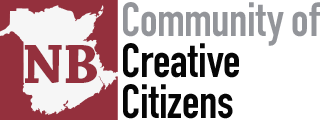TERMS OF REFERENCE:
Executive Summary
New Brunswick’s K-12 education system requires urgent reform. Despite significant public investment, student outcomes remain below national and international benchmarks. Academic standards have eroded, standardized evaluations have been removed, and classroom discipline and support services have weakened. These trends have resulted in both declining excellence and widening equity gaps, particularly in literacy, numeracy, science and second-language acquisition.
We propose forming a New Brunswick Education Reform Commission, who will conduct a comprehensive, independent review of the province’s education system, covering both Anglophone and Francophone sectors, and all public and private K-12 institutions. Its purpose is to evaluate policies, structures, and practices, identify systemic barriers to student success, and provide clear, evidence-based recommendations for both immediate corrective action and long-term reform.
1. Objectives
The Commission shall:
• Assess the quality, consistency, and effectiveness of instruction across all subject areas, with particular attention to literacy, numeracy, science, and second-language acquisition
• Identify structural barriers to student success, including curriculum design, grade configurations, and administrative centralization.
• Evaluate the impact of current inclusion and accommodation practices on both low and high-performing students.
• Evaluate the validity and reliability of student assessment methods, including concerns about mark inflation, the removal of standardized exams, and exclusive reliance on internal evaluations
• Examine teacher recruitment, retention, and professional development
• Evaluate the impact of centralization on community representation, responsiveness, and student outcomes
• Analyze how school size and configuration-particularly middle school versus K-9 models—affect student outcomes and school culture
• Assess the effectiveness and cost-efficiency of French Immersion, Core French, and post-Intensive French programs in achieving functional bilingualism
• Provide evidence-based recommendations for policy and practice improvements
• To review policies of interaction of social and health services with the public education system.
• Evaluate how well the current system prepares students for post-secondary education, apprenticeships, and the workforce, including the availability of vocational and experiential learning opportunities.
2. Scope
• Covers public and private schools offering kindergarten to grade 12.
• Includes curriculum design, teaching practices, assessment methods and support services.
• Considers urban, rural, and remote school contexts
• Timeframe of analysis: last 5 -10 years, with projections where possible.
3. Restoring Community and Parental Engagement
• Review of the role of DECs and Parent School Support Committees in local governance
• Recommend strategies to strengthen community voice and accountability in school decision-making.
4. Methodology
• Literature review of academic research, government policies, and educational reports
• Quantitative analysis of standardized test scores, graduation rates, and enrollment data
• Qualitative interviews and surveys with educators, students, parents, and administrators
Comparative analysis with education systems in other regions or countries.
• Include strategies for personalized career planning and partnerships with industry and post-secondary institutions.
5. Budget Optimization
• Analyze current education spending and recent budget adjustments
• Identify opportunities to reduce administrative overhead while protecting classroom resources
• Recommend sustainable funding models aligned with student needs and population growth.
6. Timeline
• Project launch September 3, 2025
• Data collection and analysis February 28,2026
• Draft Report March 31, 2026
• Final Report Submission June 30, 2026
7. STAKEHOLDERS
• Education Committee of Community of Creative Citizens (CCC)
• Department of Education and Early Childhood Development
• District Education Councils and Parent Committees
• Teachers, school administrators, and Unions
• Students and families
• Anglophone and Francophone communities
• Community colleges, universities, and apprenticeship bodies
• Employers, industry groups, and professional associations
